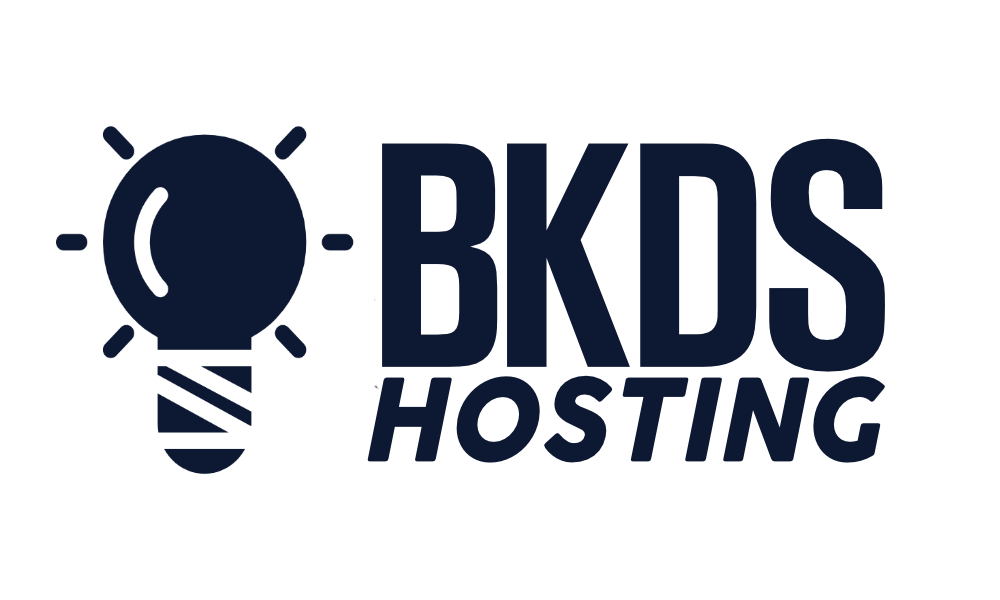In the digital age, the efficiency and reliability of a business's online presence are as crucial as the quality of the products or services it offers. Selecting a dependable web hosting service is a cornerstone for ensuring this. The right web hosting service not only guarantees smooth operations, but it also acts as a pillar for potential business growth. However, with an overwhelming number of options available, making an informed decision can seem daunting. This discussion aims to shed light on ten critical factors to consider when choosing a web hosting service that aligns with your business growth objectives. As we unravel these considerations, it will become evident how pivotal the role of a web host is in influencing your business's trajectory in the online marketplace.
Understanding Your Hosting Needs

How well do you understand your website's hosting needs? For many business owners, this question is not always easy to answer. Yet, understanding your hosting needs is a critical first step in choosing a web host that supports business growth.
Firstly, you need to evaluate your website traffic and storage requirements. A reliable web hosting provider can handle high traffic volumes, ensuring optimal performance even during peak times. Additionally, the hosting plan should provide sufficient storage for your website's data.
Secondly, consider the specific features and functionalities your website requires. If you're running an e-commerce site, for example, your hosting needs will include robust security measures and the ability to handle online transactions. The web host provides these features and more, ensuring your site can meet its objectives.
Evaluating Hosting Packages
When it comes to evaluating hosting packages, several crucial factors come into play, including the reliability and uptime guarantee, bandwidth, storage capacity, scalability, and the availability of technical support. A reliable web hosting company offers a significant uptime guarantee, ensuring that your website is always accessible to visitors, which is vital for business growth.
Web hosting costs vary, so it's crucial to assess the features of each hosting plan. Shared hosting might be more affordable, but if your business requires more resources, dedicated hosting could be a better option.
Choose a Web Host that offers substantial storage and bandwidth capacity to accommodate your website's growth. Scalability is another critical aspect. As your business grows, your web host should be able to support the increasing traffic and data volumes.
Customer support is a pivotal factor. Opt for a web host that offers responsive 24/7 customer support. This ensures any issues with your website are resolved swiftly, minimizing disruptions to your online operations.
Lastly, consider a web host's reputation. Research customer reviews and success stories to ascertain the reliability and performance of a web hosting company.
Importance of Customer Reviews

Building on the consideration of a web host's reputation, it's imperative to underscore the importance of customer reviews in selecting a dependable web hosting service for your business. Customer reviews offer invaluable insights into the real-world performance and reliability of the host. These reviews can expose potential issues, allowing for informed decision-making that aligns with your specific needs and goals.
When choosing the right Web Host Provider, customer reviews can provide a wealth of information. They highlight the quality of service the web host offers, their efficiency in addressing issues, and their overall customer support structure. This online feedback can instill confidence in the provider's capabilities, or conversely, raise red flags that may not have been evident from the provider's own website or promotional materials.
In the digital era, where the success of your business is intricately linked to the performance of your website, selecting a web host should never be done blindly. Instead, the process should be guided by careful research and evaluation of customer reviews. This approach ensures that the chosen host aligns with your business growth strategy, contributing to an online presence that is both robust and reliable.
Assessing Bandwidth Requirements
The discussion now shifts to a critical component of web hosting for business growth – assessing bandwidth requirements. A firm understanding of bandwidth usage is absolutely essential as it directly influences the performance and loading speed of your website. Furthermore, having the ability to strategically upgrade bandwidth capacity when necessary ensures that your website can efficiently handle increased traffic, providing a seamless user experience.
Understanding Bandwidth Usage
Navigating the complexities of bandwidth usage, it becomes crucial to carefully evaluate your website's needs based on potential traffic and content delivery requirements. Understanding bandwidth usage is fundamental in choosing the right web hosting type and services for businesses growth. It is directly linked to the performance of your web server and thus affects the user experience. Server locations and hosting features also come into play. Small businesses, in particular, must consider the scalability of bandwidth to accommodate future growth. The correlation between bandwidth usage and costs associated with web hosting plans should be understood. Consulting with hosting providers can aid in determining the most suitable bandwidth allocation, ensuring a reliable and efficient web hosting experience.
Upgrading Bandwidth Capacity
In the realm of digital growth, comprehending your current bandwidth usage and forecasting future requirements is a fundamental step towards sustained business expansion. Upgrading bandwidth capacity is essential to accommodate increased website traffic and content, ensuring robust performance and an optimal user experience.
Consideration | Benefit
— | —
Scalability | Flexibility in bandwidth options allows for future expansion.
Performance | Bandwidth limitations can impact website performance.
User Experience | Adequate bandwidth ensures smooth user experience.
Consultation | Web hosting providers offer advice on the best bandwidth upgrade options.
Security | VPS hosting offers robust security features.
Choosing the right web hosting for business includes evaluating the scalability and security features that hosting providers offer. Remember, dependable web hosting is a key component to business growth and server capacity is a significant factor.
Balancing Cost and Quality

When selecting a web host for your business, it is crucial to consider the delicate trade-off between cost and quality. Balancing cost and quality is a vital aspect of choosing web hosting services that could significantly impact your business growth.
The best web hosts offer a harmonious blend of affordability, robust customer service, excellent website performance, and a high level of security. It's not just about finding the cheapest hosting solution; it's about finding dependable web hosting that delivers value for money.
Remember, an inexpensive hosting plan may seem attractive, but if it fails to deliver in terms of website performance or customer service, it could harm your business in the long run. On the other hand, spending excessively on a high-end plan might offer advanced features but could strain your budget if not necessary.
Consider your long-term business goals when evaluating the cost and quality of web hosting options. A more expensive plan might make sense if it aligns with your growth strategy and provides features that can help you scale.
Deciphering Terms of Service
Understanding the terms of service in your web hosting agreement is an essential step in choosing a dependable provider that aligns with your business needs and practices. To choose the right web hosting service, you must read the terms carefully, understanding the obligations and limitations they impose.
| What to Look For | Why It Matters |
|---|---|
| Data Ownership Clauses | These determine who owns the data stored on the web hosting service. |
| Use of Resources | This denotes the extent of resources your website can utilize, affecting its performance and usability. |
| Content Restrictions | These are rules about what content is permissible, impacting your site's functionality and business model. |
| Service Interruptions, Refunds, or Agreement Termination | Understanding these terms helps manage expectations and potential future disputes. |
Different types of hosting offers come with different terms. Whether you're seeking a domain name or a comprehensive hosting package, ensure the web hosts provide terms that support your business growth. Unclear terms should be clarified with the provider. This way, you look for a web hosting service that not only meets your current demands but also fosters future expansion.
Testing Customer Support

Evaluating the efficiency and reliability of customer support is crucial in selecting a dependable web hosting service for your business. When testing customer support, it's essential to assess the availability and responsiveness of the support team. A web host that supports its clients round-the-clock is invaluable, especially for new customers unfamiliar with the intricacies of web hosting.
Multiple support channels such as phone, email, and live chat should be offered, ensuring that assistance is always accessible. The right plan for business growth should include a support team ready to resolve issues effectively and efficiently.
Another factor to consider is the existence of a help center or knowledge base. These online resources allow customers to troubleshoot common problems independently, fostering a sense of empowerment and saving time.
Examining customer satisfaction ratings and reviews also provides insight into the quality of customer support. A high level of customer satisfaction generally indicates a reliable and effective support team.
Ultimately, selecting a web hosting service with dependable customer support can significantly contribute to business growth, ensuring your online presence remains strong and consistent.
Importance of Backup Plans
The significance of backup plans in web hosting cannot be overstated, given their role in safeguarding against data loss from cyber threats and server failures. Regular backups of web data serve as a reliable protective measure against the destruction or replacement of site files. Employing a web host that provides comprehensive backup solutions can also serve as a strong defense against ransomware and other potent cyber threats.
Implementing Regular Backups
In the digital landscape of business, implementing regular backups serves as a robust shield against potential data loss and website crashes, underpinning the continuity and security of your business operations. This becomes a fundamental consideration when picking dependable web hosting for business growth.
- Consistent Backups: Regular backups protect your business by offering a fallback option in case of unanticipated data loss incidents.
- Security Measures: Regular backups safeguard your business from potential security breaches, ensuring your data remains intact and uncorrupted.
- Business Continuity: A well-structured backup plan supports business continuity, restoring operations quickly in case of technical failures.
Implementing regular backups is not just a web hosting tip, but a necessity in the innovative business world. This is among the top 10 tips for picking web hosting that supports business growth.
Evaluating Backup Solutions
As we delve deeper into the realm of solid web hosting, it becomes abundantly clear that a meticulous evaluation of backup solutions is a critical component in fortifying your business against data breaches and loss. When researching web hosting, it's vital to find the right web host for your business that offers reliable backup solutions. In the quest for business growth, a dependable web hosting service is integral for an effective online presence. Regular backups secure your websites against cyber threats and data loss, thereby protecting your business's digital assets. Therefore, when selecting a web host, prioritize those offering robust disaster recovery plans. In sum, evaluating backup solutions is a paramount step in ensuring a resilient and dynamic web hosting for business.
Security Features to Look for

Navigating the digital landscape, it's crucial to prioritize a web host that offers extensive security features to safeguard your business data. Businesses looking to secure their digital presence need to place a high premium on security, as the right hosting can protect sensitive data and personal information from cyber threats.
When your website needs web hosting, there are key security features to look for:
- Secure Sockets Layer (SSL): This is a protocol for securing connections between your website and its users. Find a web host that provides a free SSL certificate, ensuring all data transmitted between the server and visitors is encrypted and safe.
- Robust firewalls and malware scanning: A host that provides these will protect against cyber attacks. Firewalls can filter out potential threats, while malware scanning can detect and remove malicious software.
- Regular backups: In case of data loss, it's vital to have a recent backup of your website. Ensure the web host offers regular, automated backups.
Avoiding Inexperienced Hosting Services
When considering web hosting services for your business, it is crucial to be mindful of the potential pitfalls of inexperienced providers. The risks associated with inadequate hosting can have detrimental effects on your business, from reduced site performance to significant downtime. Therefore, it is essential to evaluate the provider's experience, reputation, and the quality of the technology they offer before making a selection.
Identifying Inexperienced Providers
To evade the pitfalls of inexperienced hosting services, one should meticulously investigate the company's reputation and track record. When considering web hosting providers, the right support should be a crucial factor to consider. Look for services that offer 24/7 customer support with a proven record of quick and effective responses.
Three important steps to identify inexperienced providers are:
- Make sure to check customer reviews and feedback. These can provide insights into the provider's reliability and performance.
- Look for industry awards and recognition which often signal expertise and credibility.
- Check if the web hosting company keeps pace with technological advancements. Innovative companies often indicate superior capability and experience.
Risks of Inadequate Hosting
Engaging with inexperienced hosting services can expose businesses to numerous risks, including weak servers and unstable network connections, which can ultimately lead to lower search engine rankings. One of the main factors to consider when choosing a new web host is their uptime score. Hosting Deals with companies that have an annual uptime score below 99% are not suitable for your site's growth. Inadequate hosting can also negatively affect your website's performance. Different Hosting providers offer varying control panel options; understanding these can help in making an informed decision. Keep in mind that the quality of the server can impact your site's load speed, a crucial element to consider. Be vigilant about these risks to ensure a dependable web hosting experience.
Conclusion
In conclusion, selecting a reliable web host is a crucial factor in ensuring sustainable business growth. It necessitates a comprehensive evaluation of the host's infrastructure, customer service, security measures, and scalability potential. Balancing cost-effectiveness with quality service is vital, as is the importance of considering customer reviews and backup plans. By following these guidelines, businesses can make an informed decision that enhances their online presence and supports their growth objectives.

